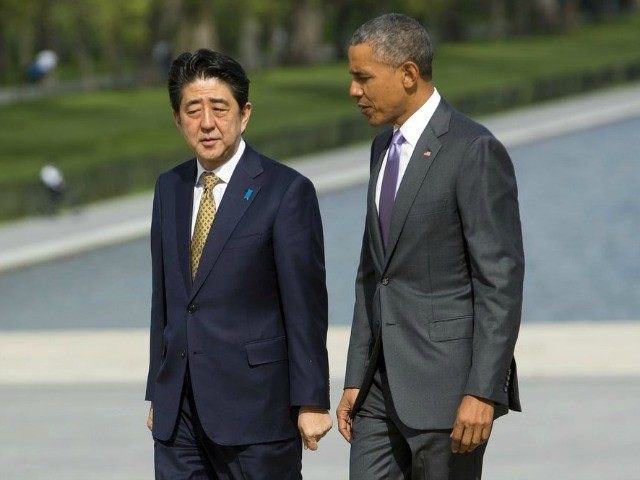Beijing is no longer America’s top creditor, ceding that position to the government of Japan after selling $41.3 billion of its U.S. Treasury holdings in October.
While Japan also let go of some of its U.S. debt holdings in October, the number was not significant enough to keep it in second place of nations holding Treasury debt. Reuters reports that current Chinese holdings are the lowest in more than six years, though Japan had already overtaken China in ownership of U.S. debt once in February 2015.
While possessing more U.S. debt gives China more leverage over America in a general sense, it does little to aid the value of its own national currency, the yuan. CNN notes that China has been buying up as much of the yuan as it can to keep demand as high as possible, and thus strengthen the yuan’s value. The currency is currently at an eight-year-low in value, the news outlet adds.
“China has been consciously cutting its holdings of U.S. Treasuries, to defend the yuan, and it’s hard to stop this trend,” Zhou Hao, Singapore-based economist with Commerzbank, told Reuters, noting that he expects China to keep selling off its holdings, even if that means giving Japan more control over American debt.
The October numbers were released Thursday and do not reflect what Chinese investors chose to do following the election of Donald Trump, a consistent critic of the Chinese government, to the American presidency. Japan’s Kyodo News notes, however, that Chinese government data “showed the country’s foreign exchange reserves shrank [by] $69.1 billion in November from October to $3.0515 trillion, suggesting that Beijing may have further cut its U.S. bond holdings.” The numbers released this week come from the U.S. Treasury Department.
America’s current national debt stands at $19.8 trillion. Other major creditors include Ireland, the Cayman Islands, and Brazil.
Perhaps anticipating that investors would read bad economic news for China from its sales of U.S. debt, the Chinese state-run People’s Daily ran a column this week arguing that the United States has a serious debt problem that threatens the development of the entire globe, and predicting that President-elect Trump would increase the national debt by another $10 trillion, “put[ting] the U.S. government under huge financial pressure.”
China’s CCTV, state-run but often behaving more as a common news outlet than a government mouthpiece, published a piece, instead highlighting the reasons to be hopeful for a President-elect Trump, including “Trump’s pledge in the initial days of the presidency to pull out of the TPP (Trans-Pacific Partnership)” and the fact that Trump “value[s] the importance of a strong business acumen.”
While the U.S. national debt is a great risk to the American economy, China’s own debt is arguably a greater threat to the communist nation’s economy. China’s debt grew by $26 trillion this century, which the National Interest notes is “greater than the GDP of the United States, Japan and Germany combined.”
The publication adds that, except for Japan, China is the most indebted country in the world. As the Federal Reserve increases U.S. interest rates, it continues to challenge the value of the yuan, which forces China to increase its own national debt as it keeps yuan demand high by buying up the currency. The Federal Reserve raised interest rates on Wednesday and is expected to do so again shortly after the new year.
Even in noting that China’s refusal to lend the U.S. as much money as it consistently has may hurt the American economy, Reuters argues that “such a move would roil global markets and likely even rebound on China’s own, making this, in some analysts’ minds, a worst case scenario short of war.”

COMMENTS
Please let us know if you're having issues with commenting.